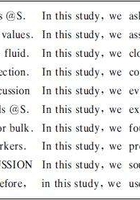
2.4.3 Idiom Principle
A distinction has been made by Sinclair between the open-choice principle and the idiom principle as two ways of interpreting language.The open-choice principle is defined as follows:
This is a way of seeing language as the result of a very large number of complex choices.At each point where a unit is completed(a word or a phrase or a clause),a large range of choice opens up and the only restraint is grammaticalness.(Sinclair 1991:109-110)
Despite the fact the“virtually all grammars are constructed on the open-choice principle”(ibid:110),Sinclair claims that“complete freedom of choice...of a single word is rare”(2004:29).One might argue that some fixed phrases(e.g.of course)actually share the same status as single words and wonder why phrases are given a special prominence.Here,as Hunston&Francis note,“Sinclair extends the notion of phraseology to encompass a great deal more of language than it is commonly considered to encompass”(2000:21).This can be seen from the definition of the idiom principle:
The principle of idiom is that a language user has to him or her a large number of semi-preconstructed phrases that constitute single choices,even though they might appear to be analysable into segments.(Sinclair 1991:110)
In other words,analyzability is no longer the most important factor determining the status of phrases as valid objects in phraseological research,and even“we might say that all senses of all words exist in and are identified by the sequences of morphemes in which they typically occur”(Hunston&Francis 2000:21).
Interestingly,such analyzability may lead to two interpretations of a single phrase,one using the open-choice principle and the other using the idiom principle.Take the sequence we might argue for example.Such a sequence typically occurs in science writing.It shows the writer’s reluctance to make categorical statements and their willingness to bring the reader into the argumentation.However,using the open-choice principle,we may paraphrase the meaning as‘there is a possibility that the speaker and the hearer will speak angrily to each other’.The key point is that the hearer,on hearing we might argue in any circumstances,must decide which meaning is appropriate.Both interpretations are not simultaneously possible,although two hearers may activate different interpretations(Sinclair 1991:114).